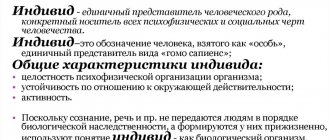Absurdity is a concept used to describe strange and absurd events or things that contradict generally accepted logic or the laws of common sense. The origin of the word absurd is due to the Latin language, where it literally meant information coming from a deaf person, i.e. so absurd that attempts to somehow explain it to oneself or others are as useless as to understand (imagine) what is stated.
More deeply, absurdity means not only the obvious meaninglessness of any position or concept, but also the result of a logical analysis of the chosen mechanism, when people come to the presence of internal contradictions in the concept itself. Many philosophical schools used the technique of bringing a situation to a state of absurdity in disputes in order to show the weak points of the theory put forward by the interlocutor, as well as the contradictory parts contained in it.
In addition to being a concept that reflects concepts and actions, absurdity can be used as a technique for transforming reality or situational influence on people. It is less effective to show a person the absurdity of his reasoning - this takes a lot of time and energy resources. But intentionally bringing a situation with a slight degree of inconsistency to the point of complete absurdity can provoke not only a change in a specific situation, but also understand a person’s general worldview, and sometimes his semantic sphere. In psychotherapeutic circles, when a client begins to lose the purpose of his own life, the category of absurdity is often used to separate what is meaningful from what is simply picking up life space.
What does absurd mean?
The word absurd comes from Lat. absurdus, “discordant, absurd.” It is used in a situation where they want to show the inconsistency of a statement or what is happening. Giving interpretations of what absurdity and absurdity mean, some philosophers are inclined towards such a meaning as nonsense. This approach is incorrect, because by nonsense it is more correct to understand statements that do not carry a semantic load: “Windows, it was days.” Absurdity is statements that carry a thought, but it is incorrect, contradictory: “The father never had children.”
Absurd
The absurd method is effectively used in culture, where it can acquire additional meanings. With the help of absurdity, a writer can force the reader to think differently, and a musician can lead to a new understanding of music. In everyday life, the word absurd can mean absurdity, nonsense, extreme, limit, uniqueness, transcendental thinking, lies, deception.
Origin of the word - what is it?
The absurd is something absurd, devoid of meaning , illogical. The word is used to denote strange, incomprehensible events and phenomena, internal contradictions within the concept, due to which it becomes unnecessary and inapplicable in practice.
The concept is used in colloquial speech and scientific literature as a special term for the following fields of knowledge : logic, philosophy, dialectics, mathematics, literature.
The concept of “absurd” came into Russian from Latin, from the word “absurdus” (“ absurd ”), which, in turn, was derived from “absurdum,” which literally means “coming from the deaf.” This information is so useless that trying to understand it or explain it to others becomes nonsense and a waste of time.
An absurdity is a statement that is logically connected, but contradicts the real state of affairs. This is how it differs from a concept that is similar in meaning – “ nonsense ”.
The difference between them is demonstrated by the following example:
- The sun rises because gladiolus.
- The sun, as always, rose in the north.
Both of these phrases are contrary to common sense; they cause protest in the minds of the reader or listener. However, the first one is devoid of internal logic; attempts to understand it are obviously doomed to failure, so it falls into the category of nonsense.
The second sentence is absurd. Its author either made a mistake due to ignorance of the real state of affairs, or deliberately distorted the facts in order to attract the attention of his interlocutors and evoke some emotions in them.
Philosophy of the Absurd
The philosophy of the absurd appeared in the mid-19th century. Its founder can be considered the Danish philosopher Søren Kierkegaard. Absurdity in philosophy is an affirmation of the meaninglessness of human existence. Thoughts about the absurdity of life were inspired by social problems, revolutions and wars. Absurdism was presented in the works of Camus, Nietzsche, Dostoevsky, Berdyaev.
The philosophy of the absurd was based on the fact that a person cannot find the meaning of life. All searches led to these two conclusions:
- on this planet it is impossible to find the meaning of existence, since all things come;
- the life of every person is determined by higher powers, a person is only a puppet and can only fill the spiritual emptiness with the help of faith and try to come to terms with what is destined for him from above.
How to use absurdity techniques - top 5 practices
Often the element is used to make people themselves understand the fallacy and illogicality of their own judgments. How to use the most common techniques in life?
Read the practices, implement them in your daily life, and be sure to share your successes in the comments to the article. This will help reinforce the results and motivate other readers to take action.
Joke
The “joke with some truth” technique. Often used as a way to escape an attack. For example, a person is offered to work overtime without increasing pay (supposedly for the benefit and prosperity of the company).
He can offer the boss to transport a folding bed, a kettle and other personal items to the office. And also mention that he does not need to pay attention to his family or deal with everyday issues.
If the opponent is adequate, then he will understand that what he proposed is completely absurd. But if a person categorically does not understand humor, the technique should not be used.
Arrows
Attempting to move the arrows. If the interlocutor is trying to put pressure, then you should redirect the arrows to someone else. For example, this is not within my authority, contact Ivan Ivanovich. However, the conditional Ivan Ivanovich clearly will not be happy with the turn of events.
It's better to point the arrows at something inanimate. For example, refer to instructions, specialized literature.
Extremes
Taking it to the extreme. It works especially effectively in domestic disputes. For example, a girl prohibits a guy from attending sports training because he pays little attention to her.
The guy should respond by refusing to participate at all in all the events and trips that they usually carry out. Just to avoid leaving the house at all.
Generalization
Inappropriate generalization. A classic example of absurdity that parents use at least once in their lives is “If all your friends go jumping off the roof, will you go too?”
Exaggeration
Intentional exaggeration or understatement. An overly touchy person should be advised to start being offended even more. Then remember the people with whom he has not yet been offended and offer to do so immediately. Then move on to those with whom he is not even familiar and to inanimate objects.
Thus, the technique of absurdity was used by ancient Greek philosophers in discussions about the meaning of life, the purpose of existence, etc. It has become widespread in various fields of art and science. Today it continues to be widely used by people whose activities are directly related to communication.
Thank you for reading the article. We will be interested to know about absurd and funny situations from your life. Share the article on social networks, save it for yourself. From time to time, you can return to the comments of other readers for a good laugh.
Psychology of the Absurd
From the point of view of psychology, complete absurdity is those objects, events, thoughts that are unusual for us and do not fit into our stereotypical understanding. The absurd is used by psychological schools for the following purposes:
- “absurd does not mean wrong” - this attitude is used by psychologists to expand the boundaries of consciousness of people in difficult or critical situations;
- absurdist techniques are used to improve children's mental abilities;
- bringing a situation or condition to the point of absurdity helps a person cope with anxiety or depression.
Use of the word in spoken language
There are the following synonyms of absurdity:
- nonsense;
- absurdity;
- nonsense;
- nonsense;
- nonsense;
- rave;
- comedy;
- nonsense;
- paradox.
In colloquial vocabulary there is no clear distinction between absurdity and nonsense. These meanings are often used as synonyms, showing that some event or situation contradicts the normal state of affairs, human logic.
For example, the use of the concept is justified in the following sentences :
- This play makes fun of human everyday problems, bringing them to the point of absurdity.
- Everything that was happening around: the neighbors’ statements, the actions of the policeman, was absurd.
- I looked into the distance, and everything that was happening around seemed absurd to me.
- In such a theater of the absurd, it is difficult to maintain the ability to think sensibly.
- The conclusions made by the student in his dissertation are completely absurd.
This word refers more to a book dictionary than to a colloquial style. It is often used as a literary device, expression, definition, designed to attract the reader’s attention, make him stop and think, for example: “Vanity exists and there is no vanity.”
The absurdities of Christianity
It is possible to talk about absurdities in Christianity only if this issue is studied superficially. At first glance, you can find not just one absurdity in the Bible, but entire complexes of strange and contradictory facts. However, the Bible has never been a simple and accessible book. Biblical absurdities include the following:
- The Old Testament says that “an eye for an eye and a tooth for a tooth,” and in the New Testament Christ states that we must love our enemies and turn the other cheek.
- The story of Jonah who was eaten by a whale. The prophet stayed in the body of the whale for three days, after which the whale spat him out into the wild.
- God gives the commandment “thou shalt not kill,” but at the same time gives the order to the Jews to exterminate neighboring pagan tribes and peoples.
Absurdity in everyday life
Photo by Francesco Ungaro: Pexels
Absurdity is a judgment consisting of contradictions. For example, the expression heard from the main character in the film “Mona Lisa Smile”: “A corset that brings you freedom.” The heroine says it with indignation, enhancing the absurdity of its content. Does it seem absurd to you?
The logic here is violated - a corset in itself cannot be a comfortable thing, it is something that fetters freedom of movement and creates restrictions. And it is presented as something that gives freedom and comfort. And, for sure, many women can fall into a similar trap of absurdity.
In everyday life, you can also encounter the absurdity of something. For example, when you see how a person drives himself into the strict framework of some rules. If you ask him why he is doing this, it turns out that this is how he is trying to make his life better.
A person's desire to be happy, to be safe and comfortable often conflicts with his fears, or even traumatic experiences. This is how a vicious circle of exhausting actions is created. A person can get out of there only after seeing the absurdity of the situation. A simple question that confronts the main human contradictions expands the boundaries of perception. And this gives you a chance to change your life and scenario.
Absurd religions
Although religion concerns deep personal experiences and is associated with faith in God, even in this area absurdity has penetrated. The most absurd religions are a strange mixture of beliefs, cults and fantasies:
- The Church of Sub-Geniuses combines beliefs in UFOs, pop culture and a number of religions.
- Prince Philip's movement. Supporters of this religion consider the Duke of Edinburgh to be a divine person.
- Church of Euthanasia. Followers of this American movement preach suicide, abortion, cannibalism and sodomy.
Man and the absurd
The absurd often saves people from difficult situations. When you can only cope with humor. Anecdotes are born from various everyday stories. Where contradictions collide most skillfully. This helps people survive something difficult that defies logic, but exists in reality. All that remains is to laugh and pass on folk wisdom around the world in this form.
Photo by Melvin Buezo: Pexels
Human relationships are full of absurd situations. If you learn to see them, it will become much easier for you to live on your own and deftly bring to light the empty insults and manipulations of other people.
For example, your man makes plans for your life together and dreams of what it will be like. He imagines what you will do and what you won't do. For example, he dreams that you will cook delicious dishes for him every day, everything is extremely tasty and fresh. But he doesn’t tell you about his plans. And suddenly, one fine evening, coming home from work, you meet an offended husband.
When you try to find out the reason, you get a bunch of complaints and insults, because he thought, and you! You can understand his feelings, of course. When myths and fairy tales are dispelled, it is not very pleasant. But his demands in this case are absurd because there were no such agreements between you. The subject of the conflict does not exist. There are only feelings.
The same works in the opposite direction. Where your words, actions or expectations meet contradictions, there will be absurdity. And that means a deadlock situation. The way out of it is the elimination of contradictions. Dialogue, cooperation and natural agreements will make life’s path smoother.
You can fight the absurd by skillfully recognizing it through contradictions and using logic. Or you can use it to cope with negativity. Here's a magic wand with two different ends!
The absurdity of life, which is eternal and inevitable
If a man comes up to you and says that he is going to lift his car above his head using only his own hands, you will tell him: “That is absurd.” Why? Because you recognize the futility of his efforts, you see the conflict between his means and a reality that does not favor the successful completion of this enterprise. He simply physically cannot lift this car over his head.
The absurd is the relationship between what people try to do and the reality in which they exist. There are absurd wars and absurd policies. There are absurd marriages, absurd university assignments, and so on. Wherever a goal (say, the war on drugs) seems impossible given the reality (there will always be some group of people producing and distributing drugs), we say it is absurd.
The philosophy of the absurd view of life begins with the idea that life has no meaning (at least not the kind we create for ourselves). Thus, a person’s ordinary desire to find the true meaning of life can be brought to the point of absurdity, since it is useless. Any attempt to create it means an inevitable conflict with the world, which is structured differently, contrary to your desires.
Absurd literature as an attempt to more accurately reflect reality
When we talk about absurdity in literature, historical context plays an extremely important role. In the 1950s, people faced the devastation of two world wars, disillusionment with modernism and rationalism, and a more liberal approach to faith—what had been considered traditional. Without a stable social structure and religious beliefs, the question of the reliability of the human psyche arose. Thinkers began to use the ideology of existentialism, which goes hand in hand with absurdity.
Existentialism places man at the starting point of thought and emphasizes the bewilderment that man feels in the face of a meaningless and lonely existence in the world. Separated from other people and disassociated from the world itself, a person is left to wander alone and is much more susceptible to mass manipulation and government control.
A lot of writers of this time used the techniques of absurdism: Franz Kafka, Camus, Beckett, Tom Robbins, Kurt Vonnegut and others. They went against classical literature and insisted that there should be a strong correlation between setting, character and plot. In other words, the authors introduced ideas of meaninglessness not only into the content, but also wove them into the very structure of the story.









